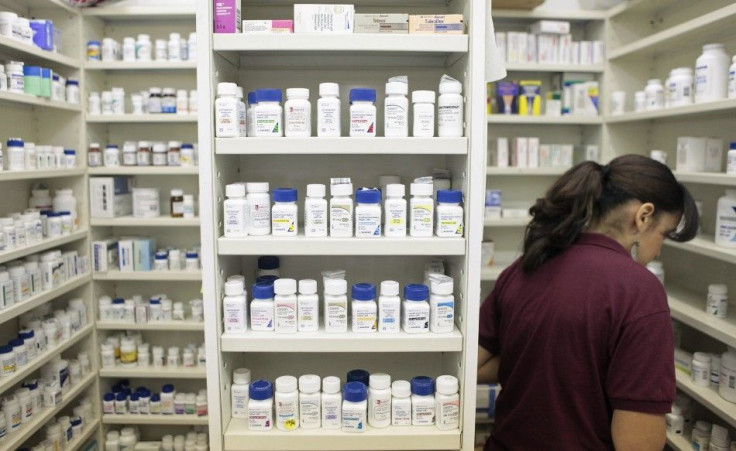Healthcare.gov – Companies Behind Obamacare Health Exchange's Construction And Its Technical Failures

UPDATE: This story has been updated to include new reports on the contracting work on the website. Booz Allen spokesman James Fisher wrote back to IBTimes after publication, noting that Booz Allen only specified the business process for the IT eligibility and enrollment system work, and did no actual IT work themselves. They also did not subcontract out the work. It is unclear which company performed that part of the job.
--
Healthcare.gov, the federal government’s health care reform centerpiece under the Affordable Care Act, is supposed to help people apply for health insurance in 36 states.
But the website has suffered from technical glitches in its first week after launch, with thousands still unable to easily sign up for coverage.
The federal government relied on a host of private companies for the information technology used in the Web portal. According to a June 2013 Government Accountability Office report, companies selected for the IT work included Booz Allen Hamilton Holding Corporation (NYSE:BAH), CGI Federal Inc (NYSE:GIB), the Mitre Corporation and Quality Software Service Inc.
Booz Allen worked on eligibility and enrollment systems, and is due at least $6 million for IT work, according to the GAO report. CGI Federal will be paid at least $86 million for work from 2011 to 2013. The company was paid a total of $634 million for its work on the website, according to Digital Trends. Mitre should earn at least $1.7 million and QSSI should earn $50 million, according to an International Business Times tally.
The four companies either didn’t return requests for comment or information from IBTimes, or declined to comment. The amounts cited represent money obligated by the federal government, which may not yet have been spent.
"We are spending 24 hours a day, seven days a week working with our client and working with our partners in order to stabilize the enrolment [process] and finish the roll-out of this very complex project,” said Lorne Gorber, a CGI spokesman, to Canada's Globe and Mail newspaper on Thursday.
The full costs could come to more, since the GAO report only covers funds allocated from October 2009 to March 2013.
Another company involved in the IT work, specifically in making a system to confirm the identities of enrollees, is Experian plc (LON:EXPN), according to the Wall Street Journal. Experian declined to comment to the Journal.
Inadequate server capacity and software bugs have plagued the healthcare.gov portal from day one, when it launched on Oct. 1, CruxialCIO reported. System crashes for people making new accounts are also common, the Journal noted.
The Department of Health and Human Services did not return a request to identify companies involved in building the health care exchange’s IT infrastructure, or specify the amounts spent.
The department referred IBTimes to a federal contracts database, which indicated that additional companies, not mentioned in the GAO report, were given smaller IT contracts for Affordable Care Act implementation from fiscal 2008 to 2012. These included Iowa-based Genova Technology, which received $16 million given for data architecture and other exchange-related IT work.
To support consumers who were signing up for insurance, federal agencies depended on the real-time data hub from QSSI, which could then help determine eligibility for enrollees, according to the GAO report. Testing the hub began in October 2012.
The White House proceeded with an Oct. 1 launch despite repeated warnings from Republican politicians and from state health care officials that the launch would be flawed, the Washington Post reported. According to the U.S. Health Department, consumers can choose from an average of 53 different medical plans, and will enjoy 16 percent less in premiums.
Even as health officials scramble to fix the IT problems, the problems now are less significant than they would be in November, when enrollment volume is expected to pick up, health care exchange expert Jon Kingsdale told the Journal.
Kingsdale’s employer, Wakely Consulting Group, received $430,000 in federal funds to advise the government on the exchange’s launch. Kingsdale didn’t return requests for comment.
In testimony to Congress, one government official estimated that establishing health care exchanges cost the Centers for Medicare and Medicaid Services (CMS) about $394 million over four years, excluding staff costs.
One upset consumer took to Twitter to express frustration, writing:
#obamacare #website #healthcare.gov still not loading. over a week now. My sites never go down more than an hour. Hire a hacker, noobs.
- Steven Spencer (@steveCodes) October 8, 2013
An assistant secretary for the health department responded to the GAO report in June 2013, which expressed wariness about the administration’s readiness for prime time, by writing: “HHS is extremely confident that on October 1 the Marketplace will open on schedule and millions of Americans will have access to affordable quality health insurance.”
8.6 million users logged into the site within its first three days, according to the Washington Post.
© Copyright IBTimes 2024. All rights reserved.












